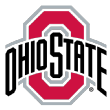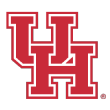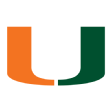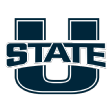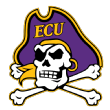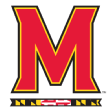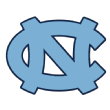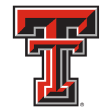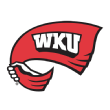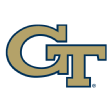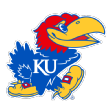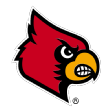From Ohio State to Kansas, what to expect from every first-year coach

A head coaching hire is terrifying. You can do all the research in the world, talk to tons of people, pay search firms hundreds of thousands of dollars, and you could still end up replacing a Steve Spurrier with a Ron Zook.
Of course, it's also an opportunity to replace a John Blake with a Bob Stoops. It all depends on circumstance and expectation.
For each of FBS's 27 new head coaches, there waits a different combination of factors and goals. Roughly speaking, each of the following fall into one of four categories:
* Those who need to make a strong run at the national title
* Those who need to make a strong run at a division title or more
* Those who either need to make a bowl to earn goodwill, or, in some cases, at least still be threatening to do so into November
* Those for whom 2019 is a Year Zero situation. In these situations, the rebuild is significant, and the short-term record doesn't matter. The goal is simply to put the pieces in the right places for 2020 and beyond and, hopefully, play better in November than September.
Let's dive into who fits where.
Contend for a national title
Ohio State (Ryan Day)
2018 record: 13-1
Projected 2019 wins: 8.7 (FPI) to 9.8 (S&P+)
Odds of winning conference (per FPI): 8%
Day's first head coaching gig comes at a school that has finished sixth or better in the AP poll for 13 of the past 17 years, hasn't lost more than two games in a season since 2011, and has lost only once to its chief rival since 2003. FPI projects his first team to lose three games, including one to said rival. No pressure whatsoever!
Ohio State is one of the few programs for which every loss is an all-caps BREAKING NEWS story. It is always going to be a high-upside, high-stress job, and in following in Urban Meyer's footsteps, Day takes the job at maybe its highest stress and highest upside. Only two or three teams can match the top-to-bottom talent level in Columbus, and if blue-chip transfer Justin Fields is ready to play like the QB he's supposed to be -- and if he stays healthy -- the sky remains the limit.
Make a run at a division or conference title
Appalachian State (Eliah Drinkwitz)
2018 record: 11-2
Projected 2019 wins: 9.0 (FPI) to 10.7 (S&P+)
Odds of winning conference (per FPI): 42%
The teams in this batch either won enough games to lose their coach to another program or, in a couple of instances, hold high standards they haven't met in a while.
For Appalachian State, it's very much the former. Scott Satterfield left for Louisville after winning 46 of his last 57 games (including last fall's inaugural Sun Belt Championship Game), and he leaves Drinkwitz with a roster loaded with impact juniors. App has all the experience and upside required for another conference title run, and Mountaineer fans know it. Drinkwitz was a worthy hire -- a branch on the Gus Malzahn coaching tree, he was an offensive co-coordinator by age 29 and spent the past three years crafting a fun, pass-first offense at NC State, three hours east. But any slippage this fall will be pinned to him; that makes things awfully tricky.
Houston (Dana Holgorsen)
2018 record: 8-5
Projected 2019 wins: 5.8 (FPI) to 6.3 (S&P+)
Odds of winning conference: 3%
Credit where it's due: Houston kept its word. Two years after the school president said, "We'll fire coaches at 8-4," Major Applewhite went 8-4 and got fired. For a school that has topped eight wins only five times in the past 28 years, the Cougars are playing a tricky expectations game, but they're also spending like a power conference team. That'll help.
They also got themselves a power conference coach. They pulled Holgorsen away from a stale marriage in West Virginia, they shelled out for his assistant coaches, and they're handing him one of the most thrilling quarterbacks (D'Eriq King), and one of the more experienced offenses, in college football. The schedule is rough, though. It features Oklahoma, Washington State and North Texas in non-conference, plus UCF and Cincinnati in AAC cross-division play. Going 8-4 might be a bit of an accomplishment, whether or not it's viewed as such.
Miami (Manny Diaz)
2018 record: 7-6
Projected 2019 wins: 8.3 (FPI) to 8.8 (S&P+)
Odds of winning conference: 3%
Speaking of schools with "expectations vs. reality" issues. ...
Diaz is the latest coach asked to restore The U to its former glory. Out of the gate, expectations seem high but manageable. No one expects the Hurricanes to win the ACC -- not with Clemson still Clemsoning all over the place. (FPI gives the Tigers an 88% chance of winning the league crown; Miami's 3% odds are second best.) They are, however, expected to win the Coastal Division and maybe not get quite as embarrassed by Clemson as they did in 2017. Beating in-state rivals Florida and/or Florida State wouldn't be a bad idea, either.
If Diaz and offensive coordinator Dan Enos can produce solid quarterback play, they'll have a decent shot at meeting expectations. Is Ohio State transfer Tate Martell the answer? Can the offense occasionally create good field position for a defense that should be strong again?
Northern Illinois (Thomas Hammock)
2018 record: 8-6
Projected 2019 wins: 5.2 (FPI) to 6.8 (S&P+)
Odds of winning conference: 4%
Rod Carey left behind an odd set of expectations when he took the Temple job. On one hand, NIU has reached the MAC title game in seven of the past nine seasons; on the other, the Huskies have regressed at least slightly, per S&P+, for five of the past six years. Last year's MAC title win was a defense-heavy magic trick.
Instead of aiming for coaching continuity as they did when Dave Doeren left for NC State in 2013 -- Carey was Doeren's offensive coordinator -- the Huskies are starting anew. A former NIU running back and assistant, Hammock spent the past five seasons as a position coach with the Baltimore Ravens. He hasn't coached in college since 2013 and hasn't coached in the MAC since 2006. Will he need a reset year to figure things out? And how long will NIU boosters give him if he does?
Temple (Rod Carey)
2018 record: 8-5
Projected 2019 wins: 6.7 (FPI) to 7.5 (S&P+)
Odds of winning conference: 1%
Temple has become a finishing school of sorts for big-time coaches. The previous five men hired by the school have been hired away by power-conference programs, and one didn't even coach a game there! Manny Diaz was the first choice to replace Geoff Collins back in December, but when Miami pulled Diaz away a couple of weeks later, Temple went to Plan B: NIU's Carey.
Carey's Huskies regressed most of the years he was in DeKalb, but they did one thing that Temple enjoys: play excellent defense. They were 23rd in defensive S&P+, and Carey and defensive coordinator Jeff Knowles should figure out fun things to do with a dynamic and experienced front seven. Offense helps, too, and it's hard to know what to expect there. But with eight projected one-possession games (per S&P+), just a little overachievement could produce a dark horse division-title run.
Troy (Chip Lindsey)
2018 record: 10-3
Projected 2019 wins: 6.6 (S&P+) to 6.8 (FPI)
Odds of winning conference: 7%
Troy made just two head coaching hires between 1989 and 2018 and nailed them both. First, Larry Blakeney won 178 games while overseeing the rise from Division II to FCS to FBS; then, when Blakeney's success trailed off at the end, Neal Brown took over and rejuvenated things.
Lindsey, an Alabama lifer and one-time Blakeney assistant, takes over the program at nearly its highest ebb. That's an almost guaranteed way to fall short of expectations. The Trojans went 31-8 in Brown's last three seasons, beating LSU and Nebraska along the way, and there's almost nowhere to go but down. Lindsey does inherit an excellent senior quarterback (Kaleb Barker), a strong running back corps, and a defense that has ranked in the top 50 in defensive S&P+ for three consecutive years. With Arkansas State, Georgia Southern and Appalachian State all visiting Troy, Lindsey will have a chance to make some noise.
Utah State (Gary Andersen)
2018 record: 11-2
Projected 2019 wins: 5.5 (FPI) to 7.4 (S&P+)
Odds of winning conference: 3%
Utah State might have simultaneously made the most logical and befuddling hire of the coaching cycle.
Logical: Andersen was the architect of the Aggies' rebuild, inheriting a program that had won six games in three years, winning seven games by his third year and 11 by his fourth. And he hasn't been gone that long.
Befuddling: Since leaving Logan, Andersen has been unmoored. He left for Wisconsin but bailed after two years; he landed at Oregon State, where he bailed after just two and a half. Utah State, meanwhile, proved it could win without him.
Andersen has outstanding quarterback Jordan Love at his disposal, but the Aggies have huge holes to fill on the depth chart at receiver, OL, linebacker and safety. The school gave Matt Wells time to find himself, and it paid off handsomely, but does Andersen have the patience to rebuild again if year one doesn't go as planned?
Make a run at 6-6
Charlotte (Will Healy)
2018 record: 5-7
Projected 2019 wins: 4.5 (FPI) to 4.6 (S&P+)
Odds of bowl eligibility: 24%
Brad Lambert couldn't quite get Charlotte over the hump -- the 49ers finished 5-7 after losing two one-score games (both of which involved the opponent returning a fumble for a touchdown) in conference play. Win either game, and he probably saves his job, even though Charlotte wasn't particularly good.
Healy earned headlines for resurrecting the moribund Austin Peay program a couple of years ago, so we know he won't panic if things don't come together in the short term. Still, while the 49ers are projected just 117th in S&P+ and 121st in FPI, they will have an outside shot of bowling if he can complement an experienced defense (which improved to 98th in defensive S&P+ last season) with anything, absolutely anything, offensively. Running back Benny LeMay and sophomore receivers Victor Tucker and Rico Arnold give him at least a little something to work with.
Coastal Carolina (Jamey Chadwell)
2018 record: 5-7
Projected 2019 wins: 4.2 (S&P+) to 5.0 (FPI)
Odds of bowl eligibility: 17%
Chadwell only sort of qualifies as a first-year coach. He led the Chanticleers as an interim in 2017, when head coach Joe Moglia stepped away to deal with health issues. Moglia returned for 2018, then retired for good. Chadwell was the obvious successor.
Despite a dreadful defense, Coastal came within a 31-28 loss to South Alabama of reaching bowl eligibility last season. An exciting offense now has to replace quarterback Kilton Anderson, but two freshmen saw quite a bit of playing time, and with running back CJ Marable and an experienced offensive line, the Chants' run-heavy attack should remain dangerous. But without massive defensive improvement, another run at six wins could be difficult. Coastal is a projected favorite in only three to four games and will be a constant underdog over the back half of the schedule. Win early, get to 4-8 or 5-7, and start building long-term.
Colorado (Mel Tucker)
2018 record: 5-7
Projected 2019 wins: 3.9 (FPI) to 4.5 (S&P+)
Odds of bowl eligibility: 25%
In each of the two years since their 2016 Pac-12 South title run, the Buffaloes finished just 5-7. They started 3-0 in 2017 and 5-0 in 2018, then fell apart from there. That sets a pretty natural bar at .500 for Tucker, a former NFL (and Georgia) defensive coordinator and first-time head coach. So does the urge to not waste what is likely receiver Laviska Shenault Jr.'s last season in Boulder.
Clearing that bar will be difficult, though. Quarterback Steven Montez and a solid secondary return, but a dreadful run game might not improve, and the defensive front seven will be incredibly green. And while the schedule doesn't feature many sure losses, it has even fewer sure wins. Expectations and reality haven't played nicely in Boulder for a while now, and 2019 might not be any different, even if Tucker eventually turns out to be a strong hire.
East Carolina (Mike Houston)
2018 record: 3-9
Projected 2019 wins: 5.1 (S&P+) to 5.5 (FPI)
Odds of bowl eligibility: 37%
ECU was, for a while, the portrait of steady quality. From 2006-14, the Pirates averaged eight wins per year and bowled eight of nine times. But they fell to 5-7 in 2015 and, in an attempt to keep up with the young-coach-hiring Joneses in the AAC, fired Ruffin McNeill in favor of Scottie Montgomery. Three years and only nine wins later, they were in the market again.
Mike Houston was an obvious upgrade on paper, and he'll have a chance to start strong. The former James Madison head coach and 2016 FCS national champ nearly took the Charlotte job but landed in Greenville instead, and he'll have a chance to immediately boost ECU back to at least its 2015 levels. He inherits from Montgomery a high-profile sophomore quarterback (Holton Ahlers), an experienced two-deep, and five or six winnable games, most of which come at the beginning of the season.
Kansas State (Chris Klieman)
2018 record: 5-7
Projected 2019 wins: 4.9 (S&P+) to 5.3 (FPI)
Odds of bowl eligibility: 33%
Bill Snyder did his successor a favor by trailing off at the end. He averaged only seven wins per year over his final four seasons, and last fall he failed to make a bowl for the first time in nine years. Klieman, the immensely successful former North Dakota State head coach, knows what it takes to succeed a legend, but the bar isn't as high in Manhattan as it was in Fargo.
Still, the KSU football program has been a plane only Snyder could fly, and it would help to assuage concerns if Klieman won a few of the many projected close games on the schedule and at least matched last year's win total. There's a slight chance of a "no one can win with Snyder's recruits but him" situation, and a resulting Year Zero, but with quarterback Skylar Thompson and a veteran-heavy two-deep, Klieman's got some tools in the tool box.
Liberty (Hugh Freeze)
2018 record: 6-6
Projected 2019 wins: 5.6 (FPI) to 5.7 (S&P+)
Odds of bowl eligibility: 54%
Ole Miss' former head coach takes over, and predecessor Turner Gill did not leave him a bare cupboard ... or a tricky schedule. The Flames return a 3,000-yard passer (Stephen Calvert), a 1,000-yard rusher (Frankie Hickson), a 1,000-yard receiver (Antonio Gandy-Golden), and a veteran-heavy defense. Granted, next year's team could be starting over from an experience standpoint, but Freeze has the opportunity to hit the ground running.
Liberty could be favored in six or seven games, and S&P+ gives the team a better than 50% shot of reaching bowl eligibility. That makes it both a symbolic and realistic goal. Granted, that doesn't assure that the Flames will make a bowl -- they have a secondary Cure Bowl tie-in that calls on them if the Sun Belt and/or AAC aren't able to fill their allotted slot there -- but if you get to six wins, you've done your part.
Maryland (Mike Locksley)
2018 record: 5-7
Projected 2019 wins: 4.1 (FPI) to 4.7 (S&P+)
Odds of bowl eligibility: 29%
As I wrote in my Big Ten East preview, Locksley received something rare this offseason: a shot at head coaching redemption. He was a ghastly 2-26 at New Mexico nearly a decade ago, and he perhaps faces more burden of proof than most of the men on this list. And with a top-20 schedule that features not only the typical Big Ten East heavyweights but also Minnesota and Nebraska from the West and non-conference battles with Syracuse and Temple, proving himself might be difficult in year one.
He'll have a shot, though. His first Terps squad will feature a veteran QB (most likely, Virginia Tech transfer Josh Jackson) and a skill corps loaded with explosive sophomores like running back Anthony McFarland and receivers Dontay Demus and Jeshaun Jones. And a defense that ranked 51st in defensive S&P+ last year both returns some veterans and added a few transfers.
North Carolina (Mack Brown)
2018 record: 2-9
Projected 2019 wins: 4.5 (S&P+) to 5.4 (FPI)
Odds of bowl eligibility: 25%
Brown inherits a program that is caught somewhere in between a rebuild and a potential rebound. On one hand, the Tar Heels have won five games in two years and will be starting either a true or redshirt freshman at quarterback. That's a Year Zero situation if ever one existed.
On the other hand, you don't hire a 67-year-old head coach with the idea of taking on a long-term rebuild. Plus, UNC is experienced virtually everywhere besides quarterback and could boast both a tremendous run game -- quite the QB protector -- and a stellar pass defense.
An early upset win over either South Carolina (which couldn't defend the run last year) or Miami (which couldn't pass) could trigger a 3-1 start and make a bowl run a possibility into November. Even if it falls short, that would likely create enough buzz for Brown to keep recruiting well.
Texas State (Jake Spavital)
2018 record: 3-9
Projected 2019 wins: 5.2 (FPI) to 5.5 (S&P+)
Odds of bowl eligibility: 50%
Spavital served as Dana Holgorsen's offensive coordinator at West Virginia for the past two seasons, and they both moved back to Texas in the offseason. Holgo is at Houston, while Spav is two-and-a-half hours away in San Marcos, taking on one of the most befuddling jobs in FBS. Texas State is perfectly placed from a recruiting perspective, but a flaky and unreliable administration made Everett Withers' job harder than it could have been, and he went just 7-28 in three seasons.
Thanks to heavy returning production and an exciting defense, however, the Bobcats would have been projected to take a nice step forward had Withers received a fourth year. But his loss could be Spavital's gain: If he and offensive coordinator Bob Stitt -- of Colorado School of Mines and Montana fame -- provide any sort of offensive bump, Texas State could threaten bowl eligibility against a pretty manageable schedule.
Texas Tech (Matt Wells)
2018 record: 5-7
Projected 2019 wins: 6.4 (S&P+) to 6.7 (FPI)
Odds of bowl eligibility: 73%
Kliff Kingsbury really was close to making things work in Lubbock. Granted, things worked out pretty well for him -- he somehow managed to jump from fired college head coach to newly hired NFL head coach this past winter -- but he had finally managed to oversee some defensive improvement last fall (to 81st in defensive S&P+), and Tech was averaging 45.9 points per game with freshman Alan Bowman at quarterback. But Bowman got hurt, Tech averaged 20.3 points without him, and the Red Raiders went from 5-2 to 5-7.
Wells therefore inherits maybe the most friendly situation of any new coach: Tech has finished with a winning record only once in the past five seasons but almost certainly would have last year if not for Bowman's injury. So if Wells can simply fulfill last season's promise with Bowman and a lineup loaded with upperclassmen, then he's a Year 1 success.
West Virginia (Neal Brown)
2018 record: 8-4
Projected 2019 wins: 4.6 (FPI) to 6.0 (S&P+)
Odds of bowl eligibility: 60%
West Virginia is one of 2019's biggest mysteries, as evidenced by the distance between FPI's and S&P+'s respective projections. The Mountaineers have to replace starting quarterback Will Grier, four of last year's top five receivers, three of last year's top four defensive linemen, and half the two-deep in the secondary. That, combined with a potential culture change, could result in at least a temporary setback in Morgantown.
There's a pretty clear path to something decent, though. Brown was phenomenal at Troy -- after a first-year reset, granted -- and inherits just enough that he'll have a chance at first-year success. WVU boasts quite a few intriguing QB and WR candidates, the run game could be dynamite and, well, the Mountaineers' defensive front was already pretty bad last year. It's not likely to get all that much worse. And while the schedule is tricky, it could allow for a fast start.
Western Kentucky (Tyson Helton)
2018 record: 3-9
Projected 2019 wins: 5.1 (S&P+) to 6.2 (FPI)
Odds of bowl eligibility: 39%
Mike Sanford's pain could be Helton's gain. Sanford was fired after just two seasons and a 9-16 record, but last year's Hilltoppers squad was super young -- freshman and sophomore QBs, freshman RBs, sophomore OLs and a defense for which only three of the top 14 tacklers were seniors. When you've fallen from 11 wins to three in just two seasons, that seems to set up like a Year Zero situation. But in Bowling Green, it might not be.
Helton was Jeff Brohm's offensive coordinator at Western Kentucky in 2014-15, so he knows the landscape and perhaps a few of the upperclassmen. His first-year success will come in his ability to develop what was a young and truly awful offense last fall. The Hilltoppers were 120th in offensive S&P+ and had topped 28 points only once in their first 10 games before breaking out for 70 in the final two.
Year Zero
Akron (Tom Arth)
2018 record: 4-8
Projected 2019 wins: 3.5 (S&P+) to 4.1 (FPI)
Odds of bowl eligibility (per S&P+): 9%
Terry Bowden had his moments at Akron -- an 8-5 record and No. 81 S&P+ ranking in 2015, an improbable MAC East title in 2017, an equally improbable upset of Northwestern in early-2018. But after back-to-back finishes in the 120s in S&P+, Bowden was fired and replaced by just about the most Northeastern Ohio coach imaginable.
Arth attended Cleveland's Saint Ignatius High and went to college at nearby John Carroll. He became head coach at his alma mater by age 32, moved up to FCS Chattanooga at 36, and got an FBS call-up, back in NE Ohio, at 38. He inherits a team that was horrible on offense (but returns seven starters) and compelling on defense (but returns only four starters). The Zips are obvious favorites in zero games, but a handful of tossup games should mean at least a small handful of wins.
Bowling Green (Scot Loeffler)
2018 record: 3-9
Projected 2019 wins: 3.0 (S&P+) to 4.3 (FPI)
Odds of bowl eligibility: 3%
The last time Bowling Green made a coaching hire, the athletic director basically Googled "good offense," then hired the first person he could afford from the team that played good offense.
By comparison, the process that led to the hire of Loeffler -- a 44-year-old former offensive coordinator at Temple, Auburn, Virginia Tech and BC who, unlike predecessor Mike Jinks, had actually entertained thoughts of becoming a head coach -- was downright logical. It still produced an odd conclusion, though.
Per S&P+, Loeffler was never the coordinator for a top-50 offense, and in three seasons at BC, he basically had one good month, late in 2017. His coordinators (Terry Malone on offense, Brian VanGorder on defense) are veterans with shaky track records, too. And now, he'll presumably try to install a more physical philosophy onto personnel designed for spread and speed. Even if it eventually works, it probably won't in 2019.
Central Michigan (Jim McElwain)
2018 record: 1-11
Projected 2019 wins: 3.4 (S&P+) to 4.6 (FPI)
Odds of bowl eligibility: 7%
Before he became head coach at Colorado State and Florida, McElwain had a solid track record as an offensive coordinator at Montana State, Fresno State and Alabama. We'll see how long it takes him to do some damage with a CMU team that conspicuously forgot how to move the football last season. The Chippewas were dead last in offensive S&P+, averaging just 15 points per game (third-worst in FBS) and 3.8 yards per play (worst). Transfers such as former Tennessee quarterback Quentin Dormady and former Virginia Tech receiver Kalil Pimpleton could aid with general competence, but this offense has a mountain to climb just to get back to mediocrity.
Oh yeah, and the Chips have to replace almost their entire starting front seven from a decent defense, too. The secondary could be downright good, but that probably won't matter until CMU can actually score points again.
Georgia Tech (Geoff Collins)
2018 record: 7-6
Projected 2019 wins: 3.7 (FPI) to 4.2 (S&P+)
Odds of bowl eligibility: 18%
Safe to say, Collins has the energy to withstand a reset year. The Waffle House-loving, coffee-powered former SEC defensive coordinator and Temple head coach waited a while to get this opportunity, and his first Yellow Jackets squad is going to require all sorts of perseverance.
First, he has to transition his offensive personnel from Paul Johnson's spread option to something a little more standard. Whether he has the quarterback, receivers or offensive line to do so remains to be seen. Second, he has to figure out how to turn around a defense that ranked 100th in defensive S&P+ and must replace both its top four overall tacklers and its top four linemen. This is going to be a crazy-young team, and though Collins' early recruiting returns are intriguing (he's brought in a wave of transfers), this is probably too much newness to provide wins any time soon.
Kansas (Les Miles)
2018 record: 3-9
Projected 2019 wins: 2.7 (FPI) to 2.8 (S&P+)
Odds of bowl eligibility: 2%
A coach no one seemed to want took a job no one wanted to take. That could be the first line from what ends up being an incredible redemption tale. It could also provide confirmation as to why both parties were seemingly unwanted.
Miles last coached in 2016. He should be able to upgrade the infrastructure in Lawrence over the next few years, and he might be able to recruit to a more physical identity. But in the short term, he inherits a roster that has basically one player sure to have made his two-deep at LSU: running back Pooka Williams. There's size on the offensive line and experience in the secondary, but in a Big 12 with an enormous middle class, the Jayhawks have so much ground to make up to hope for much more than a couple of cupcake wins and a conference upset in 2019.
Louisville (Scott Satterfield)
2018 record: 2-10
Projected 2019 wins: 4.2 (S&P+) to 4.4 (FPI)
Odds of bowl eligibility: 17%
Satterfield saw incredible success at Appalachian State, where he had previously played quarterback and spent more than a decade as an assistant. He took over for legendary head coach Jerry Moore, and after an initial stumble (he lost 13 of his first 18 games), he finished 46-11 in Boone.
How much of that success was due to the App State culture and his familiarity with it? How much will translate at a school that just witnessed one of the most rapid-fire collapses you'll ever see? Bobby Petrino left smoking wreckage behind in Louisville, and Satterfield's first starting lineup could feature as few as six to eight seniors. The QB group lost all confidence last fall. There are certainly some exciting young athletes -- QB Malik Cunningham, WR TuTu Atwell, CB Anthony Johnson, DE Jarrett Jackson, etc. -- but Satterfield has to build a new culture from scratch. That's not usually an overnight task.
UMass (Walt Bell)
2018 record: 4-8
Projected 2019 wins: 3.5 (S&P+) to 3.6 (FPI)
Odds of bowl eligibility: 8%
The good news: Mark Whipple came close. The now-former UMass head coach went 4-8 in both 2017 and 2018, fielding a prolific offense in both years. Four one-possession losses prevented the Minutemen from being bowl eligible in 2017, and the presence of guys like All-American receiver Andy Isabella proved that you can attract, or at least develop, high-end talent in Amherst.
The bad news: Only one side of the ball had talent. Whipple's Minutemen only once cracked the overall S&P+ top 100 (99th in 2015), and his defense ranked 124th last year. Now the offense has to replace Isabella, nearly every running back, three line starters and both primary quarterbacks. The 35-year-old Bell already has five years of offensive coordinator experience at Arkansas State, Maryland and Florida State, but the Minutemen are starting over on both sides of the ball. This is probably going to be a slow build.
Related Video
Related Topics
- SPORTS
- ESPN
- KANSAS JAYHAWKS
- TEMPLE OWLS
- WESTERN KENTUCKY-HILLTOPPERS
- CHARLOTTE 49ERS
- CENTRAL MICHIGAN-CHIPPEWAS
- TROY TROJANS
- COASTAL CAROLINA-CHANTICLEERS
- TEXAS STATE-BOBCATS
- TEXAS TECH-RED-RAIDERS
- BOWLING GREEN-FALCONS
- MIAMI HURRICANES
- NORTHERN ILLINOIS-HUSKIES
- KANSAS STATE-WILDCATS
- GEORGIA TECH-YELLOW-JACKETS
- HOUSTON COUGARS
- LIBERTY FLAMES
- OHIO STATE-BUCKEYES
- COLLEGE FOOTBALL
- MARYLAND TERRAPINS
- AKRON ZIPS
- WEST VIRGINIA-MOUNTAINEERS
- UTAH STATE-AGGIES
- UMASS MINUTEMEN
- NORTH CAROLINA-TAR-HEELS
- COLORADO BUFFALOES
- LOUISVILLE CARDINALS
- APPALACHIAN STATE-MOUNTAINEERS
- EAST CAROLINA-PIRATES


